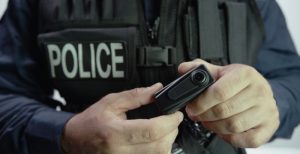As many government services shift online, the Department of Justice (DoJ) is looking to improve web and mobile applications access for people with disabilities – particularly at the state and local government level – in compliance with the Americans with Disabilities Act (ADA).
Technologies such as artificial intelligence (AI), facial recognition, and drones are poised to improve law enforcement by making police more productive and effective, but their deployment also needs to be accompanied by new thinking possible downsides including bias and cybersecurity, a Jan. 9 report from the Information Technology and Innovation Foundation (ITIF) says.
The Department of Justice (DoJ) and Department of Homeland Security (DHS) have launched a one-stop shop at StopRansomware.gov for individuals, businesses, and organizations to help combat the increasing trend of ransomware attacks, the DoJ announced today.
In a move to help increase law enforcement accountability, the Department of Justice (DoJ) announced that the Bureau of Justice Assistance (BJA) is releasing $7.65 million in a competitive microgrant grant solicitation that will fund body-worn cameras (BWCs) to any law enforcement department with 50 or fewer full-time sworn personnel, rural agencies, and Federally-recognized Tribal agencies.
A handful of Democratic legislators have sent a letter to the Department of Justice (DoJ) seeking answers to what steps the agency takes to ensure predictive policing technology is effective, and whether it tests for bias and requires transparency in algorithms used in the technology.
ODNI, DoJ, FBI, DHS Declare Election Interference ‘Top Priority’







